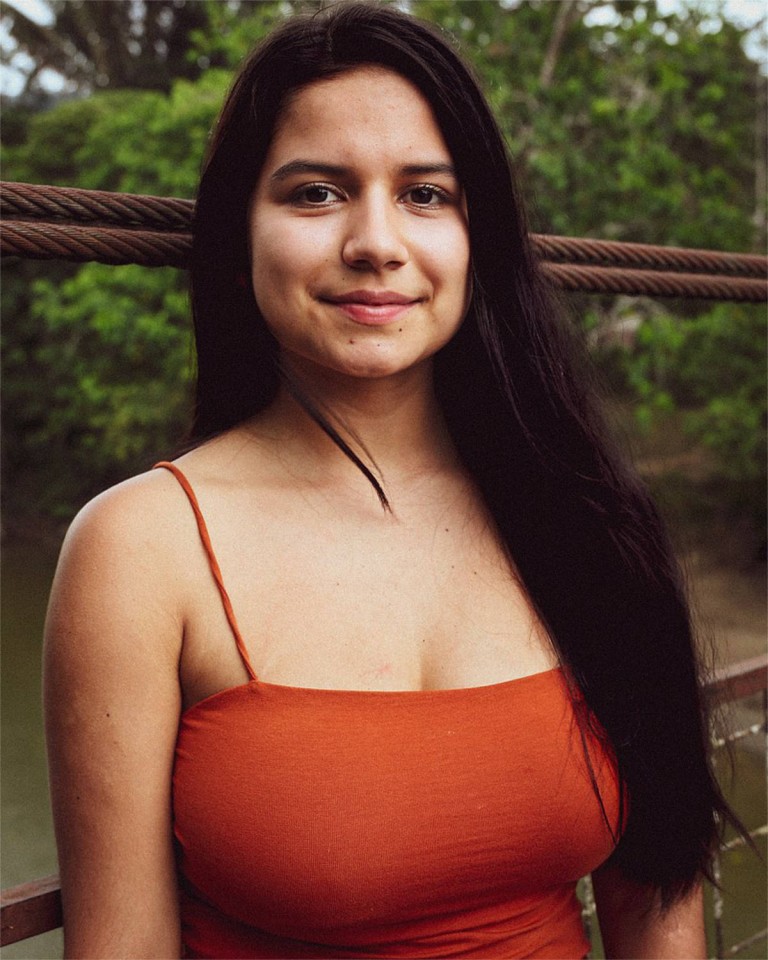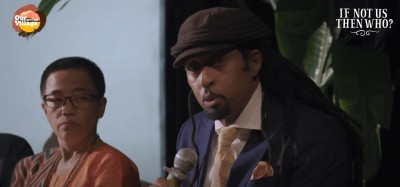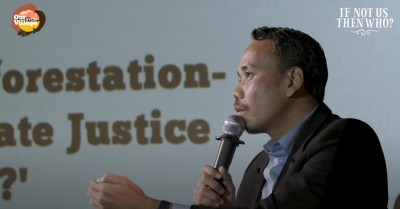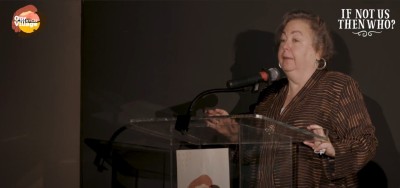The Wrong People In Power
Transcript
- And they might give like very beautiful speeches and say, like, Oh, like, my country is very biodiverse and we care about the environment and we’re banning plastic straws or whatever.
- But they do actually not care about climate change and solving climate change.
- So we can take my country, for example, the president, that is, the current president, is planning on expanding oil exploitation in Ecuador and mining.
- But he is going to go to cop and say, OK, we really do care about climate change, we did this and that, and then he goes back to our country and keeps exploiting my land, my community lands. So that’s the issue.
- We have the wrong people negotiating. We have the wrong people negotiating.
- We have the wrong people in power.
- So we are actually giving the power to these people to negotiate. But it’s very hard to take away that power.
- And I think that’s when we say that we need to have Indigenous people present.
- We need to have climate people, people that actually know about climate present there, but it’s not about them actually being present, it’s actually about them having power and having a platform and a voice to actually influence the decisions that are taken at this that are taken at these spaces, which they usually don’t have.
Climate change is a pressing global issue that requires concerted efforts from individuals, communities, corporations, and governments to address effectively. While there are many dedicated leaders and policymakers who recognize the urgency of climate action and work towards implementing sustainable solutions, it is true that there are also many in positions of power who do not prioritize or adequately address climate change. It is essential to recognize that the global response to climate change is complex, involving numerous stakeholders, geopolitical dynamics, and competing interests. While there might be individuals who impede progress, it is crucial to focus on collective action and hold leaders accountable for their decisions and policies. The private sector, civil society organizations, and grassroots movements play crucial roles in advocating for climate action and driving change from the bottom up. Efforts are being made to address this issue. Public awareness and activism surrounding climate change have grown significantly, putting pressure on leaders to prioritize sustainability. Unfortunately there is a clear truth, as Helena mentions: the people in power, such as presidents, talk about implementing change yet disproportionately affect indigenous communities while continuing to exploit their land and excluding them from the conversation and decision making spaces. This is why we need new people in power and we do have a say in who they may be.

How to transform the system?
Those most affected by the climate crisis are also those with the least power to decide and act on it. Tackling climate justice demands a shift in power, not only to repair frontline communities, but also to make sure that those who negotiate, sign and approve are also those most knowledgeable of what needs to be done to stop the crisis.
Watch next
Choose the right leaders, leaders who truly represent us.
Choose the right leaders, leaders who truly represent us.


